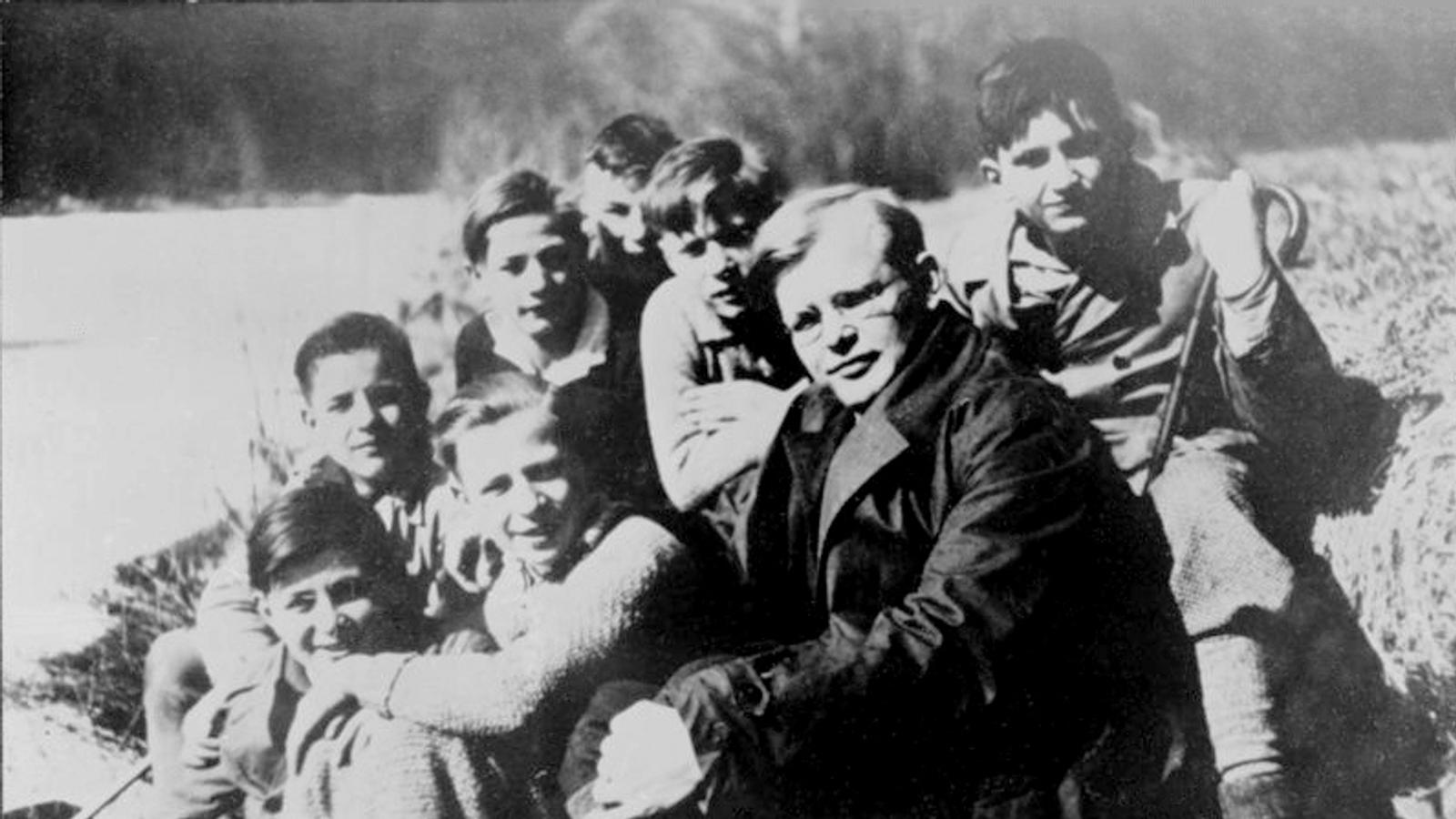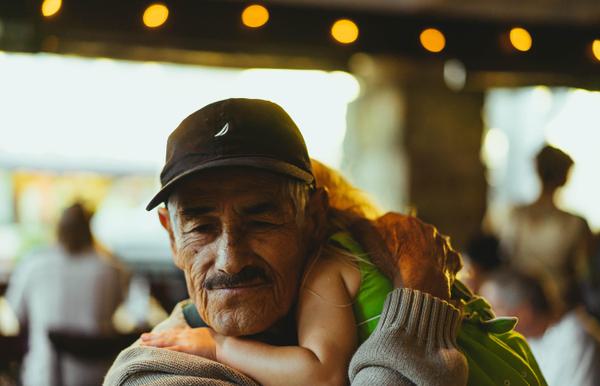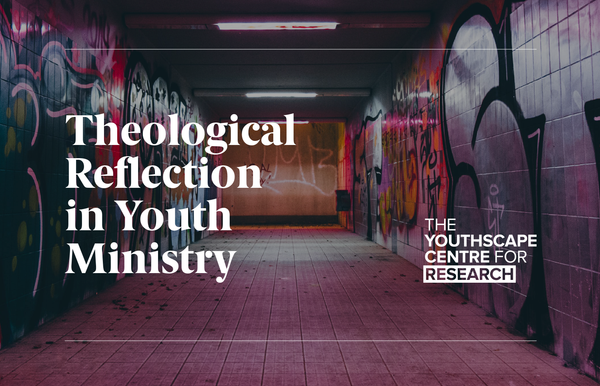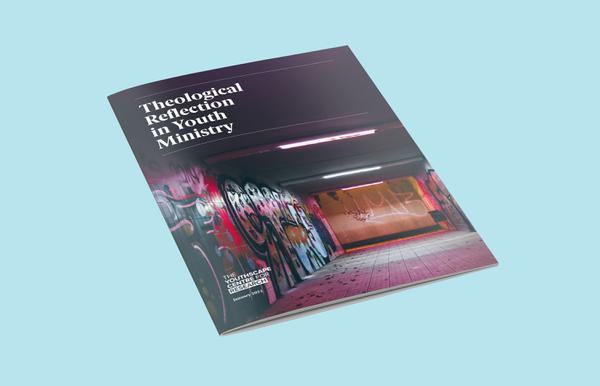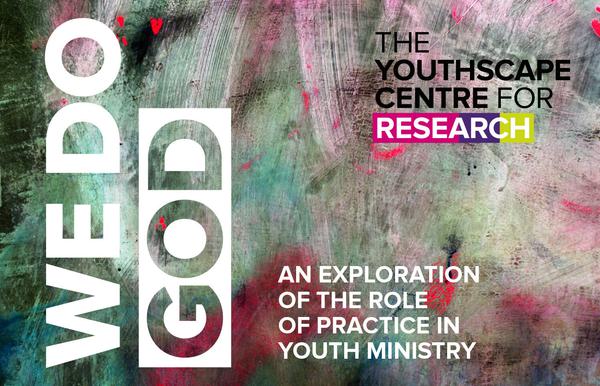What is theological reflection, why does it matter? A story from the life of Dietrich Bonhoeffer shows us how it can richly deepen ministry to young people.
In 1999 a bunch of letters were discovered, written in 1928 by Dietrich Bonhoeffer to his youngest sister’s fiancé. In one of the letters, the 22-year-old German theologian and pastor wrote "Today I encountered…a unique case in my pastoral counselling, which I’d like to recount to you briefly and which despite its simplicity really made me think". He went on to describe a 10-year-old boy who came to his house running an errand and ended up explaining that his German Shepherd ‘Mr Wolf’ had died, only half an hour ago. The boy began asking questions through his tears, about whether the dog was truly dead, and whether he would see him in heaven. Realising the boy needed both comfort and an answer, Bonhoeffer quickly made up his mind and told him that all who love each other on earth will be with God, for to love is part of God. Despite attempts to tell the boy that "…no one knows how this happens", the boy was convinced and consoled. Bonhoeffer wrote "There I stood – I am who was supposed to know the answer – feeling quite small next to him".
I read this account in Andrew Root’s book Bonhoeffer as Youth Worker and I like it – for three reasons. First, the kid called his dog ‘Mr Wolf’ – I don’t think I need to explain that one. Second, we see this confident theologian (an overachiever at the age of 22) having to face significant questions about suffering, hope and heaven in an entirely new way because of his encounter with a 10-year-old. But the third reason, is that Bonhoeffer writes about this encounter. I am fairly convinced that the experience itself would only have taken Bonhoeffer so far, but the fact that he then thought about it and wrote about it turned an unusual pastoral moment into something that more deeply impacted his own thinking and ministry, and those who continue to engage with it today. I think the letter is an example of a kind of theological reflection.
What is theological reflection?
For those new to this term, theological reflection is any process or activity that seeks to connect faith and life. It’s something we’ve been thinking about a lot this past year in the Centre for Research, and just last week Dr Phoebe Hill launched the findings of her latest research exploring Theological Reflection in Youth Ministry. Theological reflection is something you might be taught how to do if you undertake ministerial training, or study youth work and theology on certain courses. Some see it as a formal and narrowly defined activity (following specific steps), while others think it’s an everyday form of reflection that happens on-the-go. I’ll be nailing my colours to the mast when I say that, whether you know this term well or have never heard it before, I’m personally confident you will have already done it.
Theological reflection is what you do when you reflect on a 15-year-old’s question about veganism in light of what you know of scripture. It’s what happens when youth workers debrief after youth group and grasp for a sense of where God might be present, as they try to manage a tricky conflict within a peer group. It’s what happens when you notice that conversation with one of your friends is broadening your understanding of God’s love, and you lean into this process. Maybe these moments seem rare, and theological reflection may not always be as rich and deep as it could be – but it is happening. Or that’s certainly what our research suggests anyway.
"This is a time for wrestling, instead of easy answers. We cannot be in the same room, but young people still need you to ‘stand near’ in some way, being ready to listen to their experiences and work out what it means that God is with them."
The majority of the 242 youth workers we surveyed told us they reflected ‘theologically’ regularly (67% often or always) and saw it as central to their practice (61%). This reflection tended to be informal, flexible and draw on either the Bible or personal experience as starting points. One of the most interesting findings, to me, was that four-fifths (81%) of those who described their experience of theological reflection talked about it as being one-directional. In other words, they were applying theological ideas or scripture to experience, but didn’t describe their experience of life affecting their interpretation of scripture or their theology quite as often.
It goes both ways
I think what we see in Bonhoeffer’s letter is a flow in both directions: he draws on what he believes of God to comfort the boy, but also finds himself describing God’s love in new ways. The need to communicate something of God in a specific moment, with a specific person, took Bonhoeffer into an experience which in his own words "…really made me think." Root writes that "Mr Wolf forced Bonhoeffer to be nimble, to be a true theological thinker".
Being nimble.
Thinking on the spot.
Improvising in light of what you already know and believe.
This is what so much of youth work is about, and why it might be helpful for us to talk more about the habit of theological reflection. Root writes:
"Bonhoeffer helps us see that a youth minister is not someone who heaves theology onto young people, getting them to know stuff, but is rather a minister of the gospel that stands near the concrete humanity of young people, sharing in their experience, helping them wrestle with God’s action in and through their concrete lives."
This is a time for wrestling, instead of easy answers. We cannot be in the same room, but young people still need you to ‘stand near’ in some way, being ready to listen to their experiences and work out what it means that God is with them.
We know from the research that busyness and other commitments are a barrier to theological reflection, and you may not have time to process your youth work experiences in writing to friends, like Bonhoeffer. But our research does suggest that there is real appetite in the Christian youth work community to engage in theological reflection, particularly with other people. So why not see if you can find a bit of time over the next week to chew on some part of your experience with young people and explore what it might be showing you about God.
We’re going to be thinking more about how we can support youth workers in this practice over the coming months, so do please get in touch to share any helpful resources.
You can read more about the research and get a copy of the full report here.
Header image credit: Wikimedia Commons


